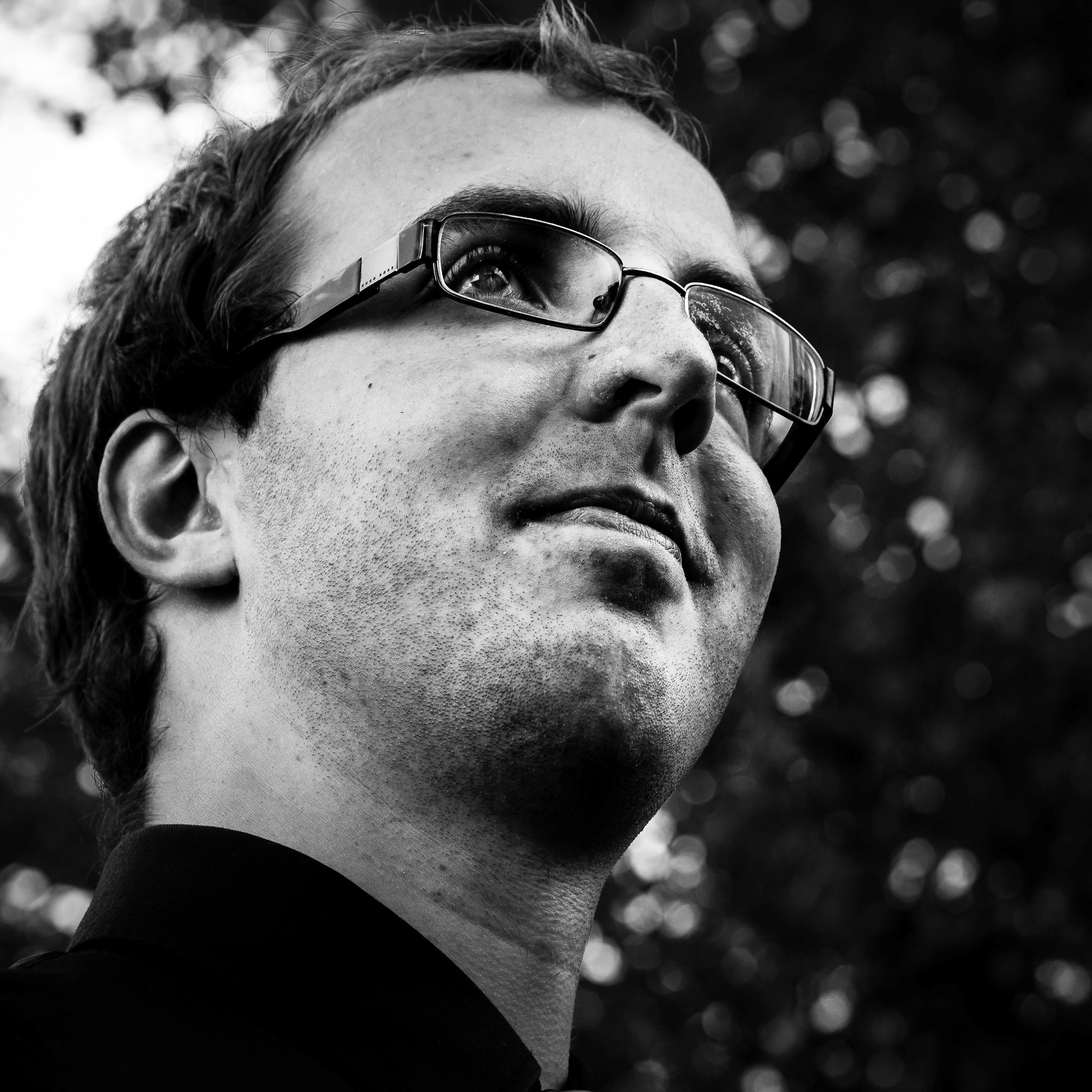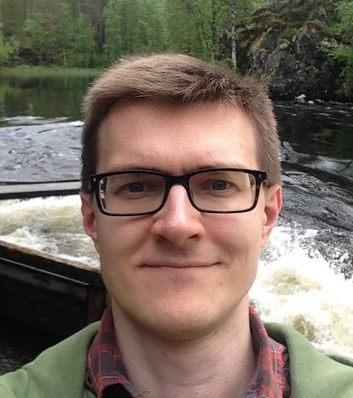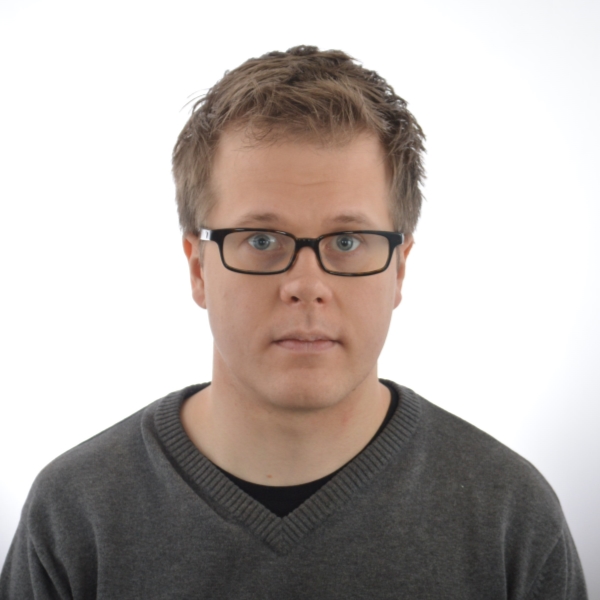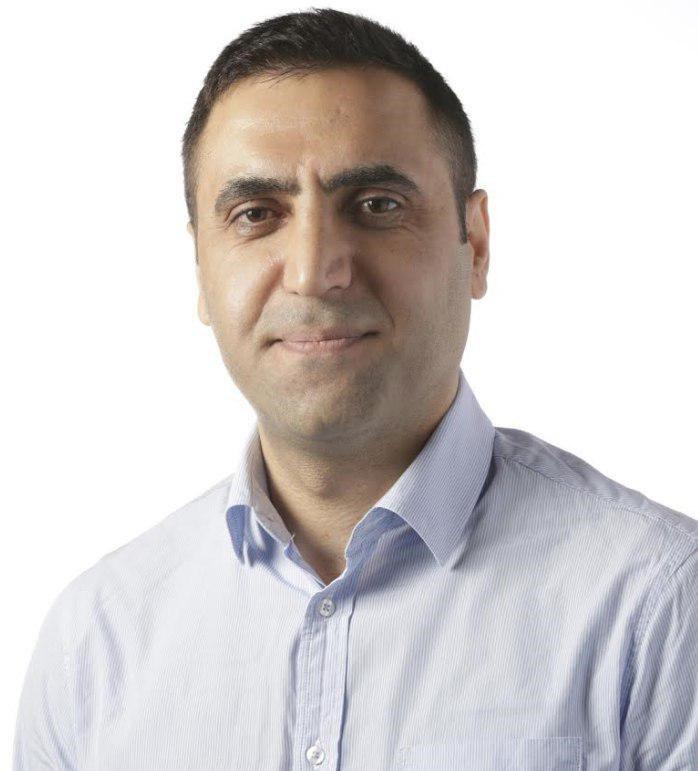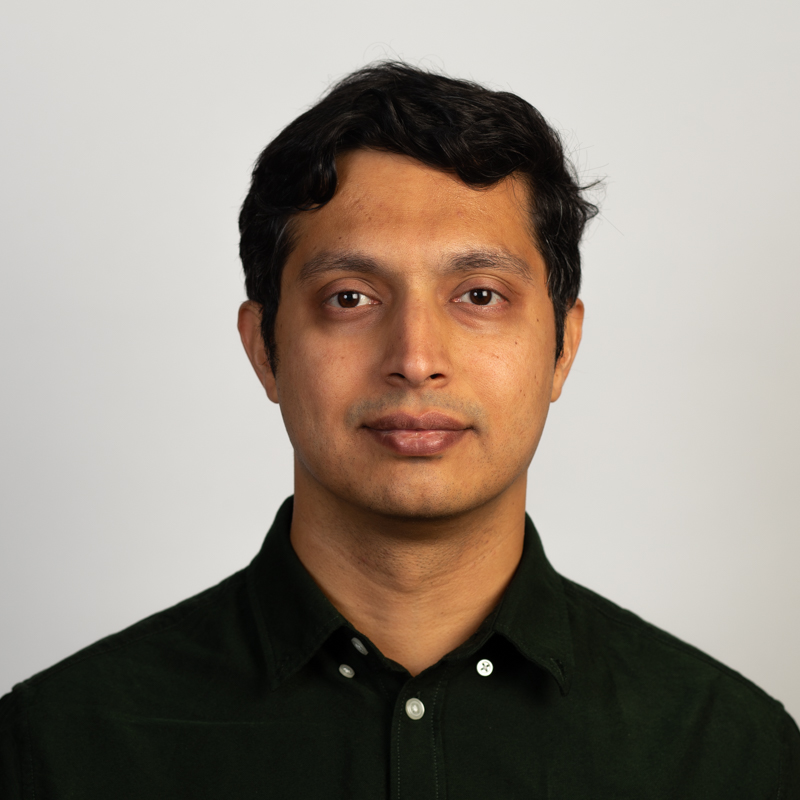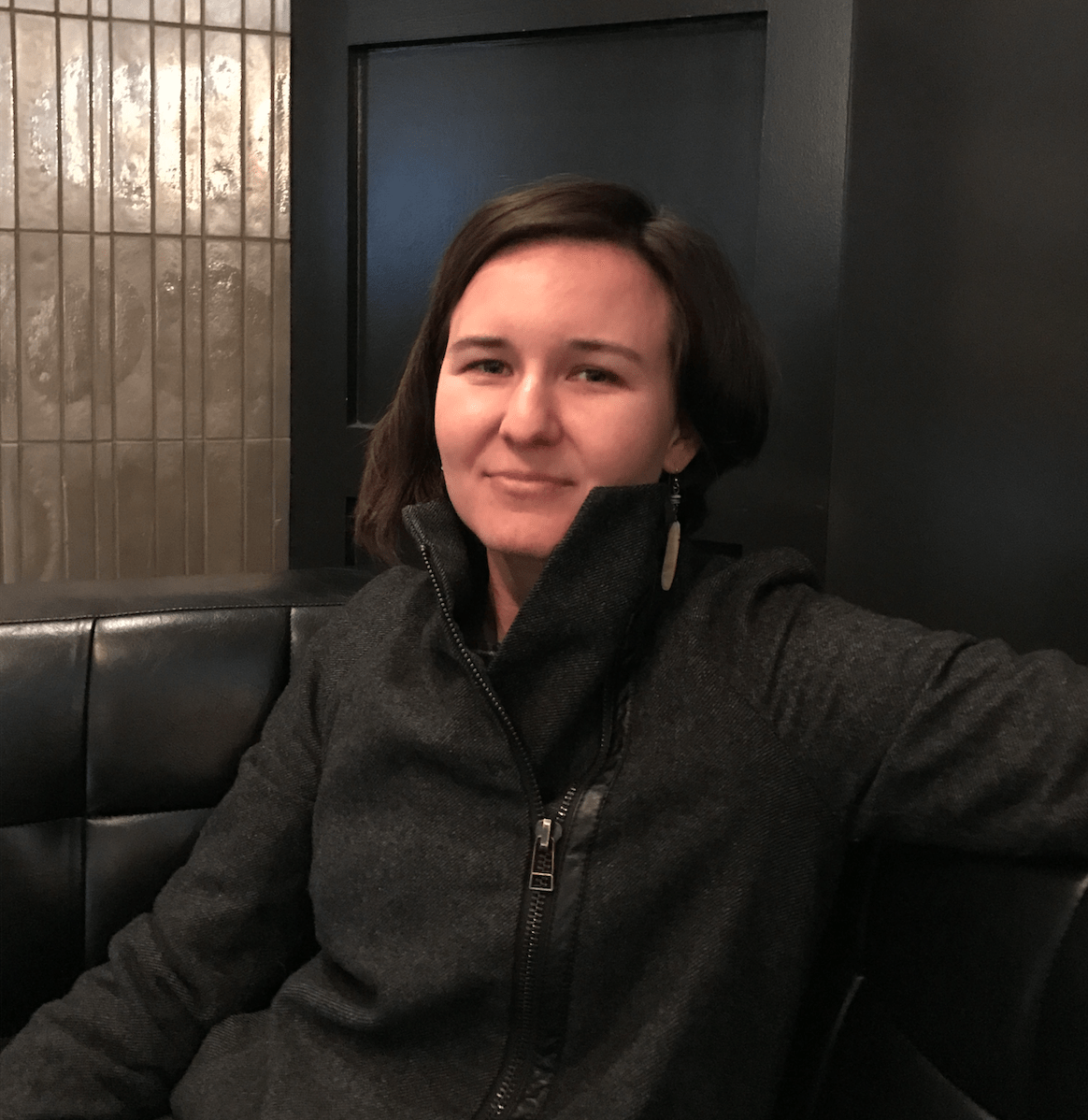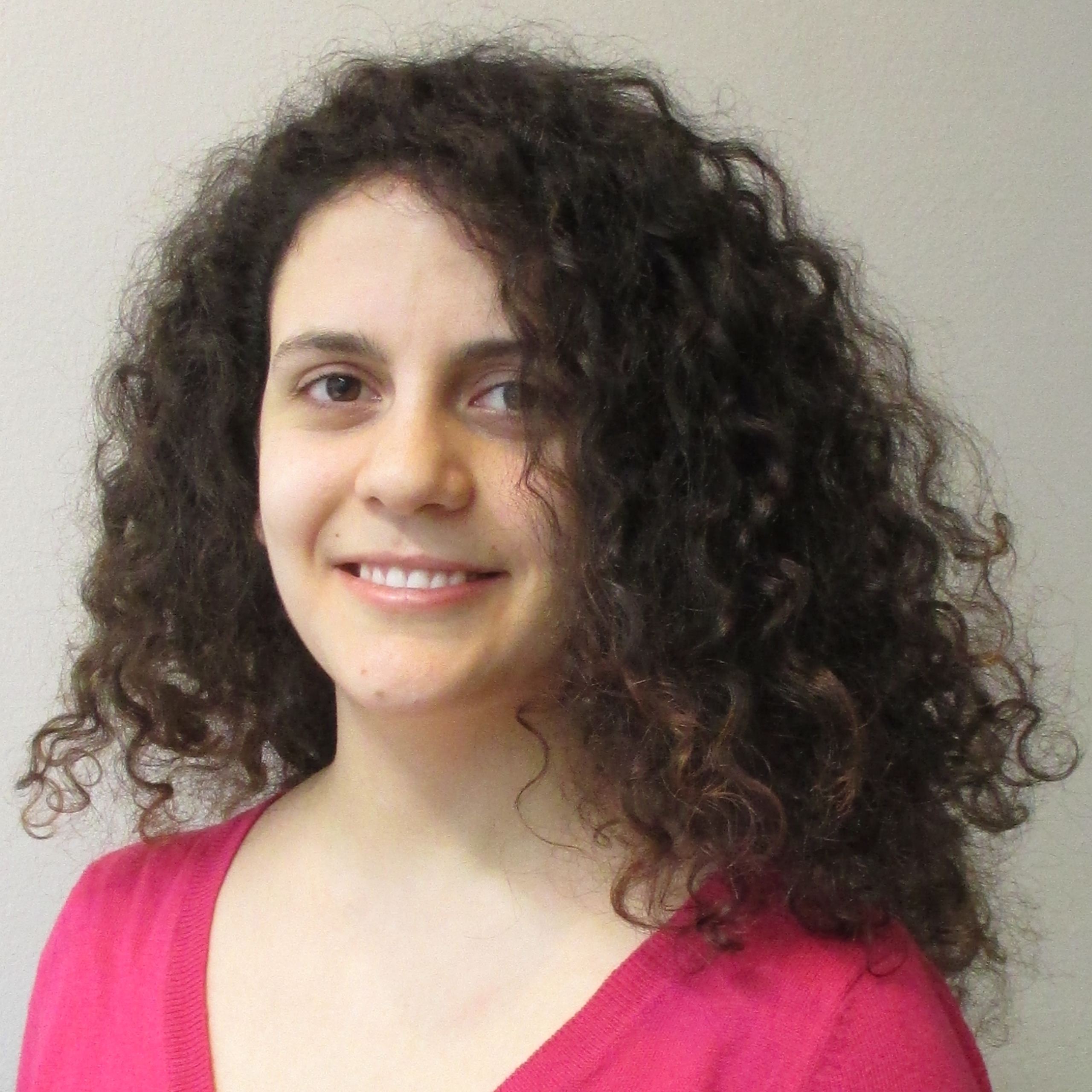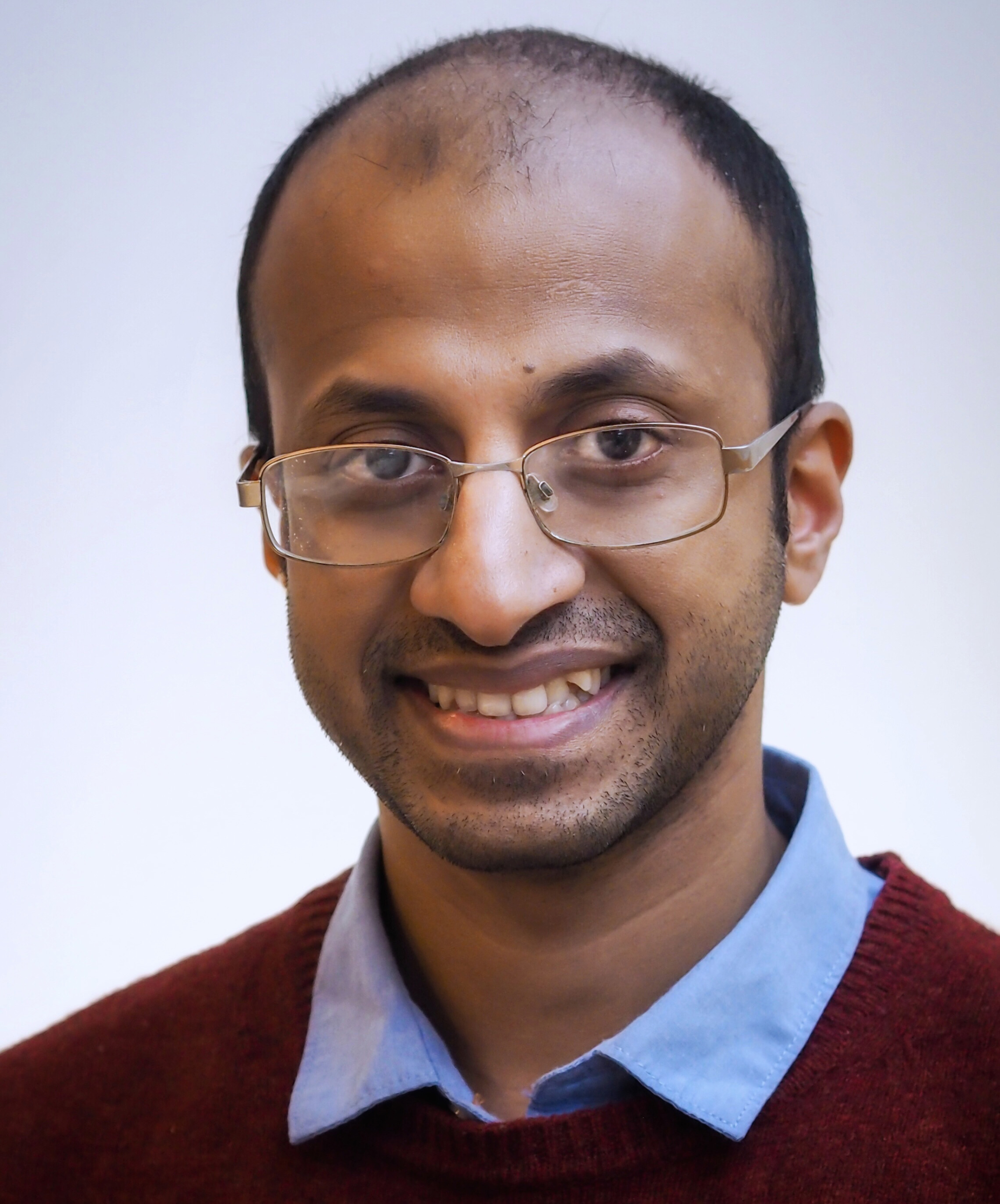Annual Report 2020: Funded Researchers
Please find below presentations of the HIIT Postdoctoral Fellows and HIIT Research Fellows.
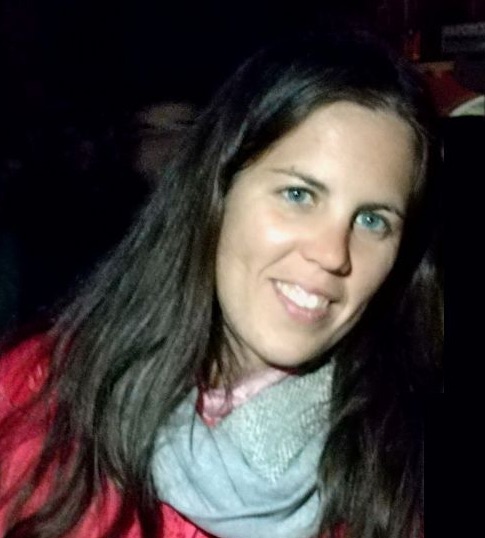
Laia Amorós Carafí
HIIT Postdoctoral Fellow 1.9.2019-31.8.2021
Amorós is part of the Machine Learning for Big Data Research Group of Alex Jung and she works in close connection with the Algebra, Number Theory and Applications Research Group of Camilla Hollanti.
Amorós has a BSc and a MSc in mathematics from the University of Barcelona. In 2016 she obtained a PhD in number theory under a collaboration between the University of Barcelona and the University of Luxembourg. She moved to Finland on 2018 to join Prof. Hollanti’s group as a postdoc at the Mathematics Department at Aalto University. In 2019 she joined Prof. Jung’s group and moved to the Computer Science Department. She is also Finland’s coordinator of European Women in Mathematics.
Amorós’ research interests include algebraic number theory, isogeny-based cryptography, wireless communications security and machine learning applications. She likes combining different unrelated areas to come up with new ideas. “Number theory can be applied to security in wireless communications and to cryptography. Machine learning provides a new and exciting source to approach these areas from a different point of view”, she says
“In 2020, we started to obtain the first results using deep learning to improve wireless communications in specific cases. This was a first step to a more general project that we are currently working on”, tells Amorós. These first results can be found in a paper accepted in the IEEE ICASSP 2021 conference. In the same area, but with a more classical approach, a paper was accepted to appear in IEEE Transactions on Information Theory in 2021. Besides that Amorós finished a project on homomorphic encryption started at the Private AI Bootcamp offered by Microsoft Research in December 2019, which resulted in a publication [2] to appear in Protecting Privacy through Homomorphic Encryption by Springer. She also finished a paper on isogeny-based cryptography to be published in 2021. A paper [1] from her PhD thesis was published.
Publications in 2020:
[1] Laia Amorós. Images of Galois representations in mod p Hecke algebras. International Journal of Number Theory, published 16 Nov 2020.
[2] Laia Amorós, Syed Mahbub Hafiz, Keewoo Lee, M. Carner Tol. Gimme that model!: A trusted ML model trading protocol. Arxiv preprint, 2020.
Dr. Jeremias Berg obtained his Master’s degree in Mathematics in 2014 and his PhD in Computer Science in 2018 from the University of Helsinki. His doctoral studies were supervised by Professor Matti Järvisalo. Berg’s doctoral research and thesis “Solving Optimization Problems via Maximum Satisfiability: Encodings and Re-Encodings“ received both national and international recognition in the form of awards from both the University of Helsinki and the Association for Constraint Programming. After graduating Dr. Berg undertook two research visits: to the University of Melbourne in 2018 and to the University of Toronto in 2019. Both visits were fruitful, resulting in publications and ongoing research collaboration. Currently, Berg is working as an HIIT Postdoctoral Fellow in the Constraint Reasoning and Optimisation group at the University of Helsinki. Berg is actively teaching at the university, for example, supervising Bachelor’s and Master’s theses. Berg also contributes to the University’s core duty of community relations, for example via his membership in the Young Academy Finland (Nuorten Tiedeakatemia). More information regarding Berg and his research can be found on his webpage jeremiasberg.com.
Berg’s research focuses on developing effective, general-purpose, tools for solving NP-hard optimization problems arising in data analysis, machine learning and AI. He is especially interested in logic-based declarative approaches. His doctoral research focused on the Boolean optimization paradigm of Maximum Satisfiability (MaxSAT). The research developed the theoretical and algorithmic understanding of MaxSAT. It also resulted in state-of-the-art MaxSAT-based solution methods to central data-analysis problems, including data visualisation, clustering and Bayesian network structure learning. Berg’s more recent research builds on his doctoral research. His recent interests include incomplete solving, i.e. developing algorithms for quickly computing good solutions to difficult optimisation problems. He is the primary developer of the state-of-the-art incomplete MaxSAT solver Loandra – one of the best performing solvers in the recent MaxSAT Evaluations. His research has also contributed to numerous other tools for solving NP-hard problems: including the CP solver solver Geas, the MaxSAT preprocessor MaxPre, and Triangulator, an implementation of the Bouchitté-Todinca Algorithm for solving various graph optimisation problems.
Berg’s recent research highlights include the 2020 Christian Schulte Doctoral Award, awarded each year to one doctoral thesis world-wide by the Association for Constraint Programming, the primary international representative association in constraint programming. Another highlight from the recent year is the best paper award of the 2020 SAT conference for his paper [1]. The paper summarised work begun during his visit to Toronto in 2019. Finally, Berg’s MaxSAT solver Loandra performed very well in the 2020 MaxSAT Evaluations that Berg also helped to organise. In 2020, he was also invited to be a member of Young Academy of Finland and participated in its “meet a researcher” initiative.
Sample of publications in 2020:
[1] Jeremias Berg, Fahiem Bacchus, Alex Poole. Abstract cores in implicit hitting set MaxSat solving. Proceedings 23rd International Conference on Theory and Applications of Satisfiability Testing (SAT 2020), pp. 277-294, 2020.
[2] Graeme Grange, Jeremias Berg, Emir Demirovic, Peter Stuckey. Core-guided and core-boosted search for CP. Proceedings 17th International Conference on Integration of Constraint Programming, Artificial Intelligence, and Operations Research, pp. 205-221, 2020.
[3] Marcus Johannes Leivo, Jeremias Berg, Matti Järvisalo. Preprocessing in incomplete MaxSAT solving. Proceedings 24th European Conference on Artificial Intelligence (ECAI 2020), pp. 347-354, 2020.
Markus Heinonen graduated with a PhD in machine learning from University of Helsinki in 2013. He visited TeleCom ParisTech for a two-year postdoc period, and joined Aalto University in 2015. He is currently an Academy Research Fellow.
His research focuses on Gaussian processes, Bayesian deep learning, dynamical models and reinforcement learning with applications in bio- and chemoinformatics and robotics. He has 32 peer-reviewed publications with an H-index of 17. His publication record contains recent contributions to NIPS, ICML, AISTATS and ICLR.
He is a co-organizer of a Dagstuhl Seminar on “Continuous-time Deep learning”, which was postponed due to Covid. He is the lead scholar in the Academy of Finland BREAL consortium 2020-22: Bridging the Reality Gap in Autonomous Learning, and he was awarded the Academy research fellowship for 2020-24. He co-organizes the FCAI machine learning “coffee” seminar.
His recent research in 2020 contains works on developing more efficient reinforcement learning with deep Gaussian processes; on introducing new low-rank Bayesian neural networks with state-of-the-art performance; on optimising synthetic reactions with active learning [2]; and on proposing new kinds of convolutional spectral kernels [1]. He is one of the organizers in a Dagstuhl Seminar on “Continuous-Time Deep learning”, which was postponed due to Covid.
Sample of publications in 2020:
[1] Zheyang Shen, Markus Heinonen, Samuel Kaski. Learning spectrograms with convolutional spectral kernels. Proceedings 23rd International Conference on Artificial Intelligence and Statistics (AISTATS), pp. 3826-3836, 2020.
[2] Sanni Voutilainen, Markus Heinonen, Martina Andberg, Emmi Jokinen, Hannu Maaheimo, Johan Pääkkönen, Nina Hakulinen, Juha Rouvinen, Harri Lähdesmäki, Samuel Kaski, Juho Rousu, Merja Penttilä, Anu Koivula. Substrate specificity of 2-Deoxy-D-ribose 5-phosphate aldolase (DERA) assessed by different protein engineering and machine learning methods. Applied Microbiology and Biotechnology, 104, pp. 10515-29, 2020.
Docent Antti Hyttinen obtained his Master’s degree in Information Technology in Tampere University (of Technology) in 2004 and his PhD in Computer Science in 2013 from the University of Helsinki. His doctoral studies were supervised by Docent Patrik Hoyer. Dr. Hyttinen did research at California Institute of Technology during 2014. Dr. Hyttinen has also obtained the competitive personal post-doc funding from the Academy of Finland (2016). Currently, Dr. Hyttinen works as a HIIT Research Fellow in the Sums of Products research group, collaborating with several research groups at the department.
Hyttinen’s research focuses on causal inference and probabilistic graphical models. Dr. Hyttinen has developed theory and structure learning algorithms for several different types of probabilistic graphical models. Many of these are causal models that allow also for latent confounding and feedback. These methods build on many different kinds of techniques such as Branch and Bound, MIP, MaxSAT, ASP, and dynamic programming. In addition, Dr. Hyttinen has developed methods for causal effect identification, experiment selection and combining different types of data sources for the aforementioned tasks.
Dr. Hyttinen received the title of Docent in February 2020. During 2020, Dr. Hyttinen published a good number of papers with different collaborators, several papers in competitive venues such as AAAI and NeurIPS. Dr Hyttinen co-authored the article [1] receiving the best paper award at the Discovery Science conference. Dr. Hyttinen also participated in research and thesis supervision at Ph.D., M.Sc., and B.Sc. levels.
Sample of publications in 2020:
[1] Riku Laine, Antti Hyttinen, Michael Mathioudakis. Evaluating decision makers over selectively labeled data: A causal modelling approach. Proceedings 23rd International Conference on Discovery Science, pp. 3-18, 2020.
[2] Kari Rantanen, Antti Hyttinen, Matti Järvisalo. Discovering causal graphs with cycles and latent confounders: An exact branch-and-bound approach. International Journal of Approximate Reasoning, Volume 117, p. 29–49, 2020.
[3] Jussi Viinikka, Antti Hyttinen, Johan Pensar, Mikko Koivisto: Towards scalable Bayesian learning of causal DAGs. Advances in Neural Information Processing Systems 33, NeurIPS 2020.
Dr. Naser Hossein Motlagh received the B.Sc. degree in Information Technology and the M.Sc. degree in Telecommunications Engineering from the University of Vaasa, Finland, in 2012. Dr. Motlagh received his D.Sc. degree in networking technology from the Department of Communications and Networking, School of Electrical Engineering, Aalto University, Finland, in 2018. His doctoral research was focused on exploring solutions for challenges associated with Internet of Thing service delivery using Unmanned Aerial Vehicles (UAVs). In 2018, after receiving the D.Sc. degree, he continued as Postdoctoral researcher at the Department of Industrial Engineering and Management at Aalto University. From January 2019 to December 2020, he was a Postdoctoral fellow within Helsinki Institute for Information Technology (HIIT) – Helsinki Center for Data Science (HiDATA) program. From January 2019, he has been a member of Megasense program and since January 2021, he is a Postdoctoral fellow within Nokia Center for Advanced Research (NCAR) at the University of Helsinki. For more information about Dr. Motlagh, please see his profile page at the University of Helsinki.
Dr. Motlagh’s research is focused on large-scale deployment of sensor networks and providing Internet of Things (IoT) services through data analytics at the edge of wireless communication networks. In general, his research interests include the IoT, wireless sensor networks, environmental sensing, and unmanned aerial and underwater vehicles; with focus on networks, sensing, applications,and services. Dr. Motlagh’s research aims to contribute smart and sustainable solutions and assist solving current and future problems of different environments such as by buildings’ energy optimization, marine pollution monitoring, and air pollution monitoring in urban areas. Part of his research includes finding intelligent and energy efficient solutions in smart buildings. He also seeks novel IoT-based methodologies in smart environments for having healthy work and living spaces. He is carrying out research on large-scale autonomous marine pollution monitoring using autonomous underwater vehicles. In addition, with the use of low-cost air quality sensors and emerging communication technologies such as 5G and beyond networks, he explores solutions for challenges related to enabling massive scale deployments of air quality sensors in urban areas and seeking solutions for healthier living environments.
Dr. Motlagh has published eight journal articles and six conferences papers during his postdoctoral fellowship with Helsinki Institute for Information Technology (HIIT). His contributions are published in top venues such as IEEE Communications Magazine, IEEE Internet Computing Magazine, IEEE Internet of Things Magazine, and IEEE Sensors Journal. He contributed publishing the vision of Megasense program in [1], and his contribution to a conference paper [2] was among the top 5 papers in Proceedings of the 15th IEEE Conference on Industrial Electronics and Applications. In 2020, He was co-teaching one masters level course: Networked Systems and Services (5 cr), and he was a co-supervisor for one master’s thesis. He was also awarded a fellowship at Nokia Center for Advanced Research (NCAR).
Sample of publications in 2020:
[1] Naser Hossein Motlagh, Emil, Lagerspetz, Petteri Nurmi, Xin Li, Samu Varjonen, Julien Mineraud, Matti Siekkinen, Andrew Rebeiro-Hargrave, Tareq Hussein, Tuukka Petäjä, Markku Kulmala, Sasu Tarkoma. Toward massive scale air quality monitoring. IEEE Communications Magazine, 58(2), pp.54-59, 2020.
[2] Andrew Rebeiro-Hargrave, Naser Hossein Motlagh, Samu Varjonen, Emil Lagerspetz, Petteri Nurmi, Sasu Tarkoma. MegaSense: Cyber-physical system for real-time urban air quality monitoring. In Proceedings 15th IEEE Conference on Industrial Electronics and Applications (ICIEA), pp. 1-6, 2020.
[3] Martha Arbayani Zaidan, Naster Hossein Motlagh, Pak L. Fung, David Lu, Hilkka Timonen, Joel Kuula, Jarkko V. Niemi, Sasu Tarkoma, Tuukka Petäjä, Markku Kulmala, Tareq Hussein. Intelligent calibration and virtual sensing for integrated low-cost air quality sensors. IEEE Sensors Journal, 20(22), pp. 13638-13652, 2020.
Ashwin Rao obtained his master’s degree in Information Technology in 2009 from the Indian Institute of Technology Delhi, and his PhD in Informatique (Computer Science) in 2013 (thesis defended in 2013 at Inria and certificate awarded in 2015) from University of Nice Sophia Antipolis, France. His doctoral studies were supervised by Professor Walid Dabbous and Professor Arnaud Legout. After graduating he arrived in Finland in July 2014 and has been a post-doctoral researcher since. He received the title of Docent from the University of Helsinki in September 2020.
He is actively teaching at the university, for example, co-supervising Bachelor’s, Master’s, and PhD theses. As of April 2021, he has co-supervised 1 PhD student, 10 Masters Students, and co-hosted research visits of 2 PhD students. More information about his research activities can be found on his webpage.
His research interests are in the area of distributed systems and networking, and his projects have touched mobile networks, video streaming, peer-to-peer communication, wireless networks, privacy and security issues, and recently operating system architectures. His research works are heavily systems-oriented, and they involve building systems for conducting large-scale measurement studies, analyzing the results, and addressing the issues identified.
His current research is along the following two interrelated threads.
1. Parallelism for high-performance computing. This work focuses on building an operating system which can be leveraged for I/O-intensive parallel tasks. It is motivated by the fact that the OS kernel needs to be bypassed for I/O operations because CPU speeds have stagnated while I/O speeds are increasing.
2. Multi-connectivity. Our devices use static rules for selecting the communication interface to use, and this work is focused on addressing this shortcoming and enabling the devices to coordinate with the network controllers managing the network functions in the network.
He received the title of Docent in September 2020. He helped organize two webinars on Edge Intelligence which had an audience of more than 50 people. He co-authored a research proposal, IDEA-MILL, that received a 3-year funding from the Academy of Finland with Prof. Sasu Tarkoma as PI. In 2020, he also taught two masters level courses: Networked Systems and Services (5 cr), and Distributed Systems (5 cr), he was an instructor for 5 Bachelors Thesis, a co-supervisor for 2 Master’s Thesis, and 1 PhD student successfully defended his PhD thesis under his co-supervision.
Sample of publications in 2020:
[1] Seppo Hätönen, Tanvir Ishtaique ul Huque, Ashwin Rao, Guillaume Jourjon, Vincent Gramoli, Sasu Tarkoma. An SDN perspective on multi-connectivity and seamless flow migration. IEEE Networking Letters, 2(1), pp. 19-22, 2020.
[2] Matteo Pozza, Patrick Nicholson, Diego Lugones, Ashwin Rao, Hannu Flinck, Sasu Tarkoma. On reconfiguring 5G network slices. IEEE Journal on Selected Areas in Communications, 38(7), pp. 1542-1554, 2020.
[3] Ella Peltonen, Mehdi Bennis, Michele Capobianco, Merouane Debbah, Aaron Ding, Felipe Gil-Castiñeira, Marko Jurmu, Teemu Karvonen, Markus Kelanti, Adrian Kliks, Teemu Leppänen, Lauri Lovén, Tommi Mikkonen, Sumudu Samarakoon, Ashwin Rao, Kari Seppänen, Paweł Sroka, Sasu Tarkoma, Tingting Yang. 6G White Paper on Edge Intelligence. Technical Report 2020.
Dr Joanna Slawinska is a HIIT Research Fellow at the Department of Computer Science, University of Helsinki, since December 2020. She has a masters degree in physics with a focus on asteroseismology (graduated in 2005) and also PhD in computational geophysics (graduated in 2011) from University of Warsaw, and postdoctoral research training in applied mathematics from Courant Institute of Mathematical Sciences at New York University .
Joanna Slawinska has extensive expertise on data-driven methods for dynamical systems, and their applications to various fields of physics, such as extraction and predictions of spatiotemporal patterns in turbulent flows. Current and future interests include AI approaches to complex systems, in particular probabilistic and Bayesian methods that are relevant to understand further and improve predictability of high-dimensional time-resolved datasets, such as temporal networks, causality, or game theory.
Joanna Slawinska joined University of Helsinki in December 2020. Since then, she has started collaborating on a number of projects, including collaborations with INAR and also Aalto University. She is also interested in expanding her expertise and training by working with experts from the Department of Computer Science/FCAI, with special focus on Bayesian and probabilistic methods such as temporal networks, causality and game theory.
Prior to that, Joanna Slawinska has worked on a number of projects during 2020, including schemes for probabilistic predictions such as with quantum compiler for dynamical systems. A draft [1] is currently under preparation for submission. Another two projects that got completed and published in 2020 concern nonparameteric prediction of tropical dynamics [3] and also novel decomposition and spatiotemporal pattern extraction in computational neuroscience [2].
Sample of publications in 2020:
[1] Dimitrios Giannakis, Abbas Ourmazd, Joanna Slawinska, Joerg Schumacher. Quantum compiler for classical dynamical systems. Arxiv preprint, 2020.
[2] Natasza Marrouch, Joanna Slawinska, Dimitrios Giannakis, Heather L. Read. Data-driven Koopman operator approach for computational neuroscience. Annals of Mathematics and Artificial Intelligence, 88, pp. 1155–1173, 2020.
[3] Xinyang Wang, Joanna Slawinska, and Dimitrios Giannakis. Extended-range statistical ENSO prediction through operator-theoretic techniques for nonlinear dynamics. Scientific Reports, 10:2636, 2020.
Dr. Razane Tajeddine received her B.Sc. in Electrical Engineering from Notre Dame University-Louaize, Faculty of Engineering, Lebanon, in 2012, and her M.Sc. in Electrical and Computer Engineering from the American University of Beirut, Lebanon, in 2014. She received her doctorate degree from the department of Mathematics and Systems Analysis at Aalto University in 2019. From 2014 to 2017, she was a PhD student at the Electrical and Computer Engineering Department at the Illinois Institute of Technology. In 2016, she came for a research visit to Aalto University to work in collaboration with the ANTA group. She was invited to the Algebraic Coding Theory for Networks, Storage, and Security, Dagstuhl in December 2018 and to the Oberwolfach Workshop on Contemporary Coding Theory, Leibniz in March 2019. Currently, Tajeddine is working as an HIIT Postdoctoral Fellow at the University of Helsinki.
Tajeddine’s research focuses on developing effective privacy preserving methods for machine learning, mainly where data is partitioned between multiple parties. Her doctoral research focused on private information retrieval (PIR), where schemes were developed to allow users to retrieve a file from a distributed storage system without revealing what file is being retrieved.
During the year 2020, Tajeddine published a preprint [1] for the work on private data sharing on vertically partitioned data, and presented the work as a poster in the AI day 2020.
Publications in 2020:
[1] Razane Tajeddine, Joonas Jälkö, Sami Kaski, Antti Honkela. Privacy-preserving data sharing on vertically partitioned data. ArXiv preprint, 2020.
Dr. Nitin Williams completed his Ph.D. from University of Reading, UK, in 2011, on developing novel signal processing methods to analyse human neuroscience data. He continued this line of research during his first post-doctoral period under Prof. Richard Henson at MRC Cognition & Brain Sciences Unit, University of Cambridge, UK. This period resulted in several important publications, e.g. in Nature Communications, Brain, Human Brain Mapping, from his involvement on the large Cam-CAN project. In 2015, he moved to Finland for his second post-doctoral period, under Prof. Matias Palva in Neuroscience Center, University of Helsinki, Finland. He was involved in an important project funded by the EU Flagship Human Brain Project, on investigating the functional connectome of the human brain, i.e. the set of connections between each pair of distinct brain regions. Towards this end, he has developed novel methods to analyse the connectome, and used these methods to uncover its modular organization.
Nitin is currently funded by HIIT, working with Prof. Samuel Kaski at the Department of Computer Science, Aalto University, Finland. His project is on using Approximate Bayesian Computation (ABC) methods to estimate parameters of biologically plausible models of human neuroscience data. Current methods to analyse human neuroscience use abstract statistical models, hence do not furnish information about biological mechanisms producing these data. During his exciting project, Nitin will 1) build biologically plausible models of human neuroscience data, and 2) fit these models to experimental neuroscience data using ABC methods. Models and methods from the project will advance Cognitive Neuroscience, by providing researchers with tools to gain insight into mechanisms underpinning their data.
In 2020, Nitin joined the Editorial Board of Frontiers in Computational Neuroscience. Further, he completed a 3-month Academy of Finland funded mobility period to Institute of Mathematical Science (IMSc), Chennai. During this period, he gained experience of building biologically plausible models of brain activity with Prof. Sitabhra Sinha, who is a renowned researcher in this field. Together with the HIIT funding, the work done in this period has resulted in a model, which produces brain networks closely corresponding to those observed in experimentally recorded data. Nitin will submit this work to NeuroImage in May 2021, and submit model implementations from the project, to open-source Brain Dynamics Toolbox.
Publications in 2020:
[1] Noham Wolpe, James N. Ingram, Kamen A. Tsvetanov, Richard N. Henson, Daniel M. Wolpert, Cam-CAN*, James B. Rowe. Age-related reduction in motor adaptation: brain structural correlates and the role of explicit memory. Neurobiology of Aging, 90, pp. 13-23, 2020.
*Cam-CAN author list: Lorraine K. Tyler, Carol Brayne, Edward T. Bullmore, Andrew C. Calder, Rhodri Cusack, Tim Dalgleish, John Duncan, Richard N. Henson, Fiona E. Matthews, William D. Marslen-Wilson, James B. Rowe, Meredith A. Shafto, Karen Campbell, Teresa Cheung, Simon Davis, Linda Geerligs, Rogier Kievit, Anna McCarrey, Abdur Mustafa, Darren Price, David Samu, Jason R. Taylor, Matthias Treder, Kamen Tsvetanov, Janna van Belle, Nitin Williams, Lauren Bates, Tina Emery, Sharon Erzinlioglu, Andrew Gadie, Sofia Gerbase, Stanimira Georgieva, Claire Hanley, Beth Parkin, David Troy, Tibor Auer, Marta Correia, Lu Gao, Emma Green, Rafael Henriques, Jodie Allen, Gillian Amery, Liana Amunts, Anne Barcroft, Amanda Castle, Cheryl Dias, Jonathan Dowrick, Melissa Fair, Hayley Fisher, Anna Goulding, Adarsh Grewal, Geoff Hale, Andrew Hilton, Frances Johnson, Patricia Johnston, Thea Kavanagh-Williamson, Magdalena Kwasniewska, Alison McMinn, Kim Norman, Jessica Penrose, Fiona Roby, Diane Rowland, John Sargeant, Maggie Squire, Beth Stevens, Aldabra Stoddart, Cheryl Stone, Tracy Thompson, Ozlem Yazlik, Dan Barnes, Marie Dixon, Jaya Hillman, Joanne Mitchell, Laura Villis.
